Today I am pleased to share a wonderful blog post by children’s author Robbie Cheadle. In this increasingly interconnected world it can be difficult for parents to explain to their children why basic math and writing skills are important. I know I am shocked by how much my six-year-old already knows about iPads, Kindle readers and desktops. Why should he bother to learn to write neatly if everything is sent via computer anyway? Robbie has an eloquent answer for us all!
Why read the book if you can watch the movie?
We live in a world of technology. Television, movies, computers, laptops, iphones, ipads and even ipods. Nothing in my children’s lives is as it was when I was growing up. Everything is fast and instant. My oldest son started high school this year. I hear about the exciting and innovative learning topics and methods he is enjoying and I feel quite envious of his learning experience. Information and research is at his fingertips at the click of a Google button. Not for him, riding his bicycle to the library and searching through a pile of books for information on a given topic and then standing in a queue to photocopy pages from said books to take home and work on. Homework assignments are made available to learners in a virtual classroom and are completed on-line and resubmitted to the teacher electronically. If he forgets a book at school, never fear, technology is here. He will reach out to his contemporaries on the school Whats App group and, very soon, someone will send through the forgotten material in a digital form. If an unexpected soccer match crops up, my son merely reaches for his iphone and sends me a text informing me of the change of plan and the updated collection time. I shudder as I think back to my time of standing in a long queue to use the one and only payphone at the school to convey any such changes to my mother. Most of the time I would have to try and reverse the changes of the call as I rarely had any money.
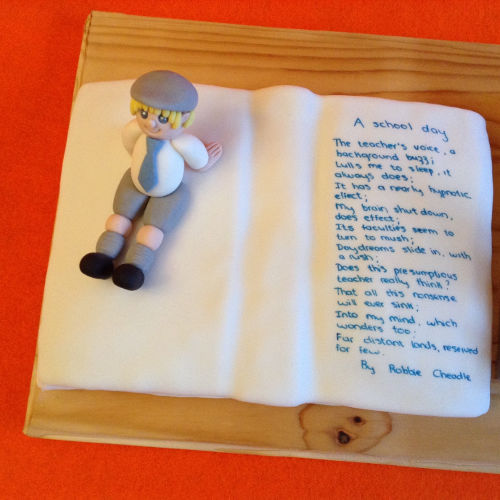
As for entertainment, this is now all electronic as well. Both of my sons while away their spare time playing complicated games on a computer. My oldest son is a very serious “gamer”. He has a gaming mouse and a huge television size computer monitor. He plays in a “cloud” with other gamers from all over the world including India and the US. He has been very well trained on the hazards of disclosing any person information on line and is not allowed to have a Facebook page although he does have Instagram.
All this technology results in a plethora of questions from my children such as what is the benefit to them of learning how to write properly are if they are going to spend their lives typing on a laptop, why do they need to learn how to spell when they will use spell check and grammar checks on their computers in the future and why should they have to read classic books when they can watch the movies.
Why indeed? What are the benefits of learning how to do these things yourself rather than relying on a virtual helper for assistance? Why is it important to read the book in addition to watching the movies?
My reply to my children is that everything in this world still starts with people. People write the programmes that provide the computers with their instructions. The instructions to the computer need to be clear and concise as what you put in is what you get out. Correct spelling, punctuation and the ability to be very precise in conveying meaning are vital skills for computer programmers.
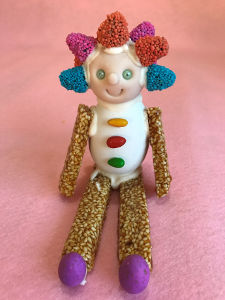
People write the screenplays that underlie the movies. The quality of a movie depends largely on the ability of the scriptwriter to interpret the contents of a good book and adapt them into a format more suitable for a movie. This process does result in a lot description and insights included in the book being lost in the movie. Even the best of movies very rarely provide for the expression of thoughts by the characters and the descriptions are limited to the senses of sight and hearing mainly. Descriptive passages and depictions in books can often give a great deal more disclosure around the emotions, feelings and thoughts of the various characters as well as more insight in the other three sense of smell, touch and taste. The written word allows the reader to use their own imagination to create the scenes in their own mind’s eye. My children were hard to convince that without writers, there would be no movies. It is rather a strange thing that they seem to think that a movie is put together without any involvement of the written word. Screenplays also do include punctuation. Imagine watching a movie which does not include any variation in the pitch and tone of the actors voices and which does not allow for dramatic pauses, questions and exclamations. Not much fun in my opinion. I ask them if they would like to spend the rest of their lives watching reality television. That would be the world if there were no writers.
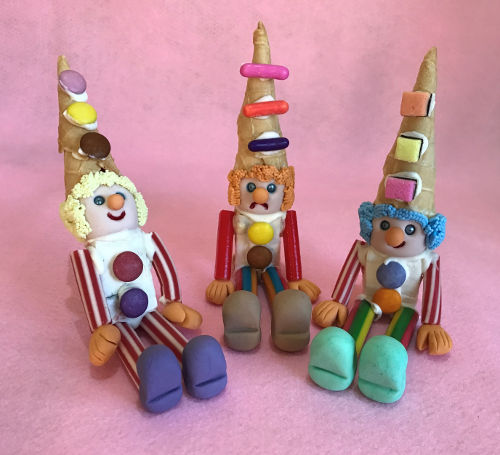
Most importantly of all, imagination and the ability to be creative and make leaps of logic are vital to innovation and inventiveness. These are two of the most important qualities for learners to develop if they want to compete for jobs in the so called Fourth Industrial Revolution that is expected to characterise the world of the future. The fourth industrial revolution is building on the digital revolution, or third industrial revolution, that has been occurring since the 1950’s and is characterised by a fusion of technologies that is blurring the lines between the physical, digital and biological spheres with developments in the fields of artificial intelligence, machine learning, robotics, nanotechnology, 3D printing and genetics and biotechnology.
In summary, it is the ability of humans to create and innovate that differentiates us from the other creatures that inhabit the animal kingdom and these are frequently expressed in our abilities to write books and create art and music. The Sir Chocolate series of books that I have written with my son, Michael, and my new book, Silly Willy goes to Cape Town, are aimed at promoting these qualities in the readers of our books. These books are designed to encourage caregivers to bake and undertake artistic activities with children while engaging them in stories that stimulate the imagination.
About Authors Robbie and Michael Cheadle
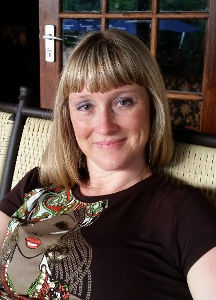 Robbie Cheadle was born in London in the United Kingdom. Her father died when she was three months old and her mother immigrated to South Africa with her tiny baby girl. Robbie has lived in Johannesburg, George and Cape Town in South Africa and attended fourteen different schools. This gave her lots of opportunities to meet new people and learn lots of social skills as she was frequently “the new girl”.
Robbie Cheadle was born in London in the United Kingdom. Her father died when she was three months old and her mother immigrated to South Africa with her tiny baby girl. Robbie has lived in Johannesburg, George and Cape Town in South Africa and attended fourteen different schools. This gave her lots of opportunities to meet new people and learn lots of social skills as she was frequently “the new girl”.
Robbie is a qualified Chartered Accountant and specialises in corporate finance with a specific interest in listed entities and stock markets. Robbie has written a number of publications on listing equities and debt instruments in Africa and foreign direct investment into Africa.
Robbie is married to Terence Cheadle and they have two lovely boys, Gregory and Michael. Michael (aged 11) is the co-author of the Sir Chocolate series of books and attends school in Johannesburg. Gregory (aged 14) is an avid reader and assists Robbie and Michael with filming and editing their YouTube videos and editing their books. Robbie is also the author of the new Silly Willy series the first of which, Silly Willy goes to Cape Town, will be available in early July 2017.
Connect with Robbie Cheadle via her blog, Goodreads, Google Plus, Facebook or Twitter.
Purchase Robbie and Michael Cheadle’s Books from Amazon or http://tinyurl.com/zdokqjr (The first three Sir Chocolate Books are currently available at a discounted price in hard copy and as ebooks.)
Silly Willy goes to Cape Town
 When the George family go on holiday to Cape Town, Cautious Craig cannot believe what he has to endure at the hands of his naughty and wilful younger brother, Silly Willy. Willy throws tantrums at the most embarrassing and inappropriate times, causes a commotion on the aeroplane and tries to steal a chameleon from Butterfly World. What is a poor older brother expected to do in these situations?
When the George family go on holiday to Cape Town, Cautious Craig cannot believe what he has to endure at the hands of his naughty and wilful younger brother, Silly Willy. Willy throws tantrums at the most embarrassing and inappropriate times, causes a commotion on the aeroplane and tries to steal a chameleon from Butterfly World. What is a poor older brother expected to do in these situations?
Also by Robbie and Michael Cheadle:
 Sir Chocolate and the strawberry cream berries story and cookbook
Sir Chocolate and the strawberry cream berries story and cookbook
Sir Chocolate and Lady Sweet live in Chocolate land where you can eat absolutely everything. Join them on a fantastic adventure to find the amazing strawberry cream berry and learn how to make some of their scrumptious recipes at the same time.
Sir Chocolate and the baby cookie monster story and cookbook
Sir Chocolate and Lady Sweet find a lost baby cookie monster. Join them on an adventure to return the baby to its mother and learn how to make some of their delicious recipes at the same time.
Sir Chocolate and the sugar dough bees story and cookbook
A greedy snail damages the flower fields and the fondant bees are in danger of starving. Join Sir Chocolate on an adventure to find the fruit drop fairies who have magic healing powers and discover how to make some of his favourite foods on the way.
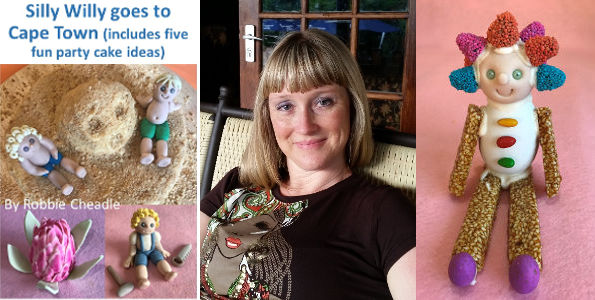
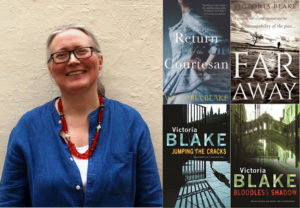
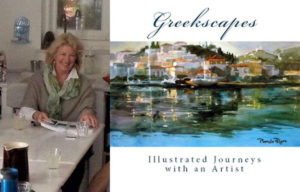

Pingback: Spotlight On… – Jennifer S. Alderson
Excellent article! Last month, I received a hand-written thank you note for a check I sent to a cousin who had graduate from high school. The spelling, grammar, and penmanship looked like that of a 7-year-old. Is this now the norm? I hope not!
I am glad you enjoyed the article, Pamela. I think the kids use predictive text and shorthand in SMS’s and emails which impacts on their spelling and writing. I have one son that writes beautifully and one that writes as if a fly had a heart attack on the page.
The most important point here is that spelling and grammar still remain skills we need to get taught. Well written Robbie.
Thank you, Tandy. I saw a newspaper headline about doing away with grammar in schools. I think that is what inspired this particular post. Have a lovely day and I hope the weather in Cape Town improves.
Great post! So true. I find myself competing with the iPad already on many occasions. Fortunately, my kids (still) want me to read to them before bedtime. I just hope that I am doing enough to get them to love books, before they get older and technology will become an ever increasingly part of their life. Hopefully, the love for books will stay…if not, now I know what to tell them!
Thank you for your comment, Lucia. My boys are fourteen and eleven years old and I still read to them both every night and read with the younger one most days. They do spend plenty of time on their computers and ipads but I feel that it is a trade off if we still spend time together reading. My oldest has grown into a huge reader and reads for at least 1 hour every day.
Excellent post, Robbie! Sharing… 🙂
Thank you, Bette, much appreciated.
I love your wise reply to–WHY LEARN?–by stating how everything in this world still starts with people. Love your little clay people, too! 🙂
Thank you, Marcia. I do believe that it all starts with the uniqueness of each person and that is why clones will never work.
Well said. Reading does allow our imagination and follow the story development which can be different from the movie.
Thank you so much for popping in, Amy. It is the same with any art, including photography. They all tell their own delightful story in our imaginations.
Excellent post, Robbie. The answers you gave to your son was clear and precise. I am sure it gave him something to think about down the line. Almost all great movies start with a book, at least that’s my thought on the matter. I loved the line about watching reality shows for the rest of his life. Ha! Good one, and, so true. Great job, Mom.
Hugs. xoxo
Thank you for reading and commenting Patricia. I agree that most great movies originate from an equally great book. You may have picked up that I am not a big reality TV fan [smile]. Have a lovely weekend. Hugs.
Great post. What adorable artwork. Robbie, you make great points in this article. Both writing and videography are essential skills that kids learn in school. I am thrilled that kids can use Google Docs and collaborate to make videos. We did not have a clue about that when I was that age. I’m sad that they don’t learn to write their names unless their 5th-grade teachers make a point of teaching them to at least learn cursive to write their names! There is so much new information for students to learn with each generation. We are sad that they don’t develop the same skills that we did when we were in school, but that is the problem of the ages. Robbie, I think you are doing what all parents want to do – pass on some of what they know to their children. In the process, children pass on what they are learning to their parents, and both come out winners. 🙂 Thanks for sharing this, Jennifer and Robbie. 🙂
Thank you for this comment, Marsha. You make an excellent point about the knowledge sharing between the generations. My sons help me with all the social media, Youtube and other “on-line” part of my life and, in return, I share my childhood stories, books and love of creating things.
Nicely said! Great article 🙂
Thank you, Marie.
Wonderful post, Robbie! And lovely to find Jennifer’s site here too. I particularly liked this part: “I ask them if they would like to spend the rest of their lives watching reality television. That would be the world if there were no writers.” ~I screamed thinking of that! Seriously though it’s true that the plots/characters/tension/etc. all comes from the writer’s mind so those movies wouldn’t exist if not for them (or if they did they wouldn’t be cohesive). I love the figures shown in the photos too!
Thank you, Christy. When I see children all clustered around a reality show it reminds me of Richard Bachman (Stephen King’s) book The Running Man in a future world where TV is compulsory for all people and the unemployed spend all day watching reality shows with a horrific twist. I shudder in horror! Have a lovely weekend, Christy.
This is a terrific post, Robbie! This article should be mandatory reading for parents and teachers alike! Bravo!
Thank you for this comment, John. Hugs.
Lovely article Robbie and I quite agree and you are providing the writing experience for your boys with your example. I fully expect there to be books by both of them on the shelves in a few years time..
Thank you, Sally. Gregory is already writing a few poems and, of course, Michael is a great source of inspiration which his delightful ideas. What until you see the chocolate house in a few weeks time.
As I can find it most confusing to be an adult in this day and age, I would NOT want to be a child in many ways. Love the coming back to square one, here Robbie. People are where it starts! <3
In some ways, Annette, our kids have a much more challenging life than we did. Technology has made everything so much bigger and brighter but, if you take bullying for example, can you imagine having a horrible photograph of yourself shared far and wide on Instagram? Horrible. Have a wonderful day. Hugs.
This is a very good argument. I am in my early going on mid-20s and it is still baffling to me when I hear about people (not just children) thinking that reading comprehension is inseparable from consuming digital media. I’m an avid gamer and also follow game writers and developers on social media alongside gaming journalists and reviewers. I think for a lot of people they’ve divorced the process of creating from the products they get. However, the writers I’ve followed for years began back when video games were still mostly text adventures. Their roles have rarely changed and their importance can be explained by the fact that so many games rely on conveying mood and story. Even games without words tell a story. Imagery relies on mood and shots that originate from the process of writing novels in a way. At their bare bones all of these media are written and even coded by hand in many cases.
I hope ore people my age and younger understand that.
Thank you for commenting, Dara. You bring in a very good point about computer/video games. My kids do, of course, play these avidly and I am hugely impressed by the fantastic creativity behind many of these games. My sons have both played Ages of Mythology and Ages of Empires for example and that game is incredible. They learn so much too. Yet, as you say, it all begins with a creative idea and someone to write the programme.
Excellent article Robbie. My 11 year old grandson has asked, “Why should I write?” Now I have the perfect answer. Thanks you.
Hello Susan, so lovely to see you here. I am so pleased you found the article interesting and useful.
A brilliant post Robbie. I am totally behind you here. Everything does start with people. Everything. and it would be a gye dreich world if it didn’t xxxxxx
Thank you, Shey. People are the beginning point without a doubt …. and, of course, Hamstahs that write. Hugs.
Pingback: Why read the book if you can watch the movie? – Robbie's inspiration
Thank you Jennifer for sharing this article on your blog. Michael and I are delighted to be your guests.
You are quite welcome!
A great post! I love your advice to your children, Robbie, “everything in this world still starts with people.” They need to know that technology still requires good writing skills. A friend of mine had a job writing manuals for technical users. That took great skill. Imagine a world of only reality TV! Yikes!!
Thank you, Darlene, writing [and chocolate of course] make the world go round.